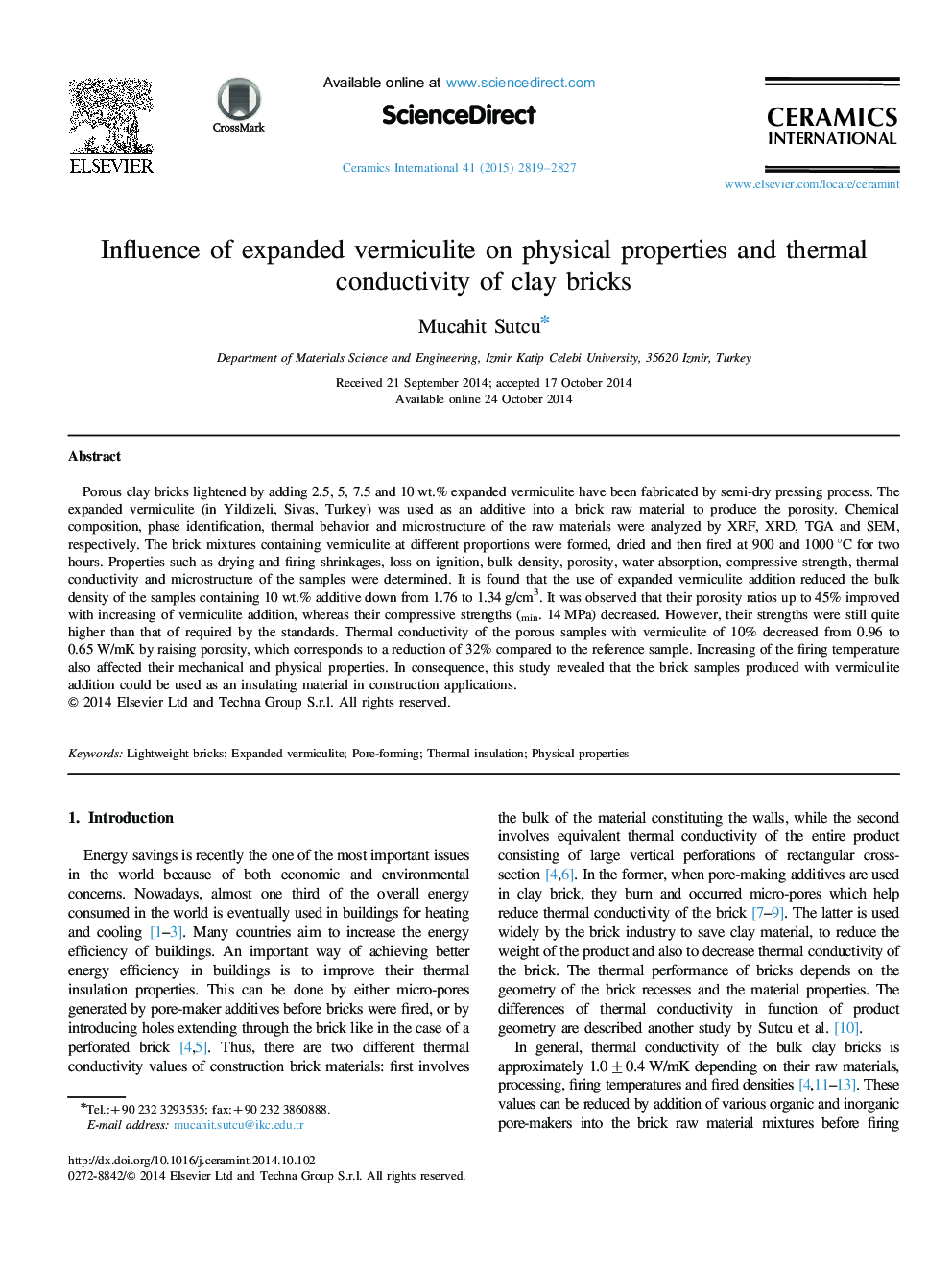| Article ID | Journal | Published Year | Pages | File Type |
|---|---|---|---|---|
| 1460598 | Ceramics International | 2015 | 9 Pages |
Porous clay bricks lightened by adding 2.5, 5, 7.5 and 10 wt.% expanded vermiculite have been fabricated by semi-dry pressing process. The expanded vermiculite (in Yildizeli, Sivas, Turkey) was used as an additive into a brick raw material to produce the porosity. Chemical composition, phase identification, thermal behavior and microstructure of the raw materials were analyzed by XRF, XRD, TGA and SEM, respectively. The brick mixtures containing vermiculite at different proportions were formed, dried and then fired at 900 and 1000 °C for two hours. Properties such as drying and firing shrinkages, loss on ignition, bulk density, porosity, water absorption, compressive strength, thermal conductivity and microstructure of the samples were determined. It is found that the use of expanded vermiculite addition reduced the bulk density of the samples containing 10 wt.% additive down from 1.76 to 1.34 g/cm3. It was observed that their porosity ratios up to 45% improved with increasing of vermiculite addition, whereas their compressive strengths (min. 14 MPa) decreased. However, their strengths were still quite higher than that of required by the standards. Thermal conductivity of the porous samples with vermiculite of 10% decreased from 0.96 to 0.65 W/mK by raising porosity, which corresponds to a reduction of 32% compared to the reference sample. Increasing of the firing temperature also affected their mechanical and physical properties. In consequence, this study revealed that the brick samples produced with vermiculite addition could be used as an insulating material in construction applications.
